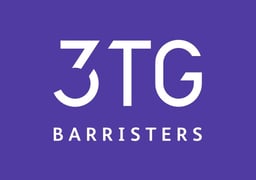
3TG Barristers
England
Diversity
- 3 Temple Gardens is committed to the active promotion of equal opportunities and tackling both direct and indirect discrimination. We recognise that there are groups of people in our society who have been and continue to be treated unfairly and disadvantaged on grounds of their race, ethnic or national origin, gender, sexual orientation, age, religion, marital/ civil partnership status, pregnancy, maternity, paternity, disability, social class or other protected characteristic.
- We further recognise that discrimination on these grounds has not been eradicated from the legal and criminal justice systems. It is our intention that every individual should be accorded equal and fair opportunity judged on merit and ability alone, free from judgments or treatment based on prejudice or assumptions of collective characteristics.
- We are committed to ensuring that our policies and practices relating to all aspects of Chambers’ operation and the legal services we offer are fair and non- discriminatory.
- We recognise that such a commitment requires that positive steps be taken to identify and eliminate possible areas of discrimination so as to ensure equality of access to all applicants, equality of treatment to all barristers and members of staff and equality of service to both professional and lay clients.
- It is the policy of 3 Temple Gardens to deal with its tenants, pupils, employees, lay and professional clients and any applicant for pupillage, tenancy or employment and all others who have contact or dealings with chambers without distinction by reference to race, ethnic or national origin, gender, sexual orientation, religion, marital/ civil partnership status, pregnancy, maternity, paternity or social class. Our policy is also to disregard age and disability save for when they are genuinely material to the relevant position.
- Chambers are committed to ensuring that pupils, tenants and employees are selected without discrimination, that discriminatory considerations play no part in the allocation of work within chambers, and that no instructions are accepted from solicitors who seek to select counsel on a discriminatory basis.
- Chambers does not permit or condone harassment or bullying on the grounds of any of the factors set out at paragraph 1.
- Chambers maintains separate written policy statements dealing with harassment and bullying (Dignity at work), fair selection of tenants, pupils, mini pupils and employees, fair access to work and instructions to clerks concerning the fair allocation of work and refusal of instructions offered on a discriminatory basis, flexible working and parental leave, reasonable adjustments policy and the operation of a grievance procedure.
- Any decision or action found to have been taken on discriminatory grounds will, if possible, be reconsidered.
- Steps will be taken to ensure that any harassment of any person or persons is brought to an end. Any tenant, employee or pupil of chambers who is found to have committed any act of prohibited discrimination will be dealt with as seems most appropriate by the Head or Deputy Head of Chambers in conjunction with the Management Committee.
- We are committed to seeing those students from less advantaged backgrounds having a career at the Bar. We are committed to forging links with schools and schemes to deliver this commitment.
- We are committed to providing specific support and mentoring for those returning to work after starting a family or other change of circumstance.
- We are committed to undertaking training, developing strategies and running workshops to improve our knowledge and ability to achieve our diversity aims.
- We are committed to promoting these principles so that the Bar is open to all, that it should reflect the society in which we live and facilitate unfettered career progression.
- Our Equality and Diversity policy is constantly reviewed and updated in accordance with developments and changes in legislation/best practice in this area and takes account of the BSB’s Equality and Diversity Code.
All barristers’ chambers are required by the Bar Standards Board’s Code of Conduct to publish anonymised diversity data at least once every three years. The survey is conducted on a voluntary basis, we must therefore point out that the data is not 100% but a large portion did respond to shed reliable light on diversity at 3TG.